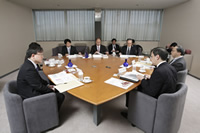
Efficient and effective implementation of financial markets policy and regulation requires practitioners, academics, and policymakers to engage in roles suited to their own unique competencies-whether understanding policy needs, studying policy theory, or planning and implementing policy-while exchanging views and information with experts in other fields. The Financial Markets Panel comprises individuals with decades of experience and notable achievements in both the academic world and the markets. Brief profiles are presented below.
Panel Members Profiles
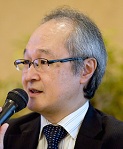
Kazuto Uchida
Managing Executive Officer, Chief Executive, Global Markets Unit
MUFG Bank
Field: Economic and financial research, money market, JGB, ALM, credit risk
For the past 26 years I have been involved in domestic and overseas financial and economic research, market analysis, asset-liability management, and credit risk management. What roles should financial markets, central banks, and financial institutions play in a world where finance is becoming increasingly globalized and the financial sector is undergoing dramatic changes? And how should we respond to the risks posed by deteriorating public finances and the central banks’ exit from vast quantitative easing programs? Additionally, what is needed for Japanese financial markets to regain their former vitality and become more globally competitive? I hope to discuss a wide range of related issues as both an economist and a financial practitioner.
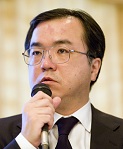
Yukio Egawa
Chief Strategist, Research Division
Shinsei Securities
Fields: Credit markets, credit risk, financial regulation
I have been involved in Japan’s securitization market since its inception in the mid-1990s. Recently, however, I have been delving deeper into credit risk in general, which is becoming the main focus of my career. As the regulations governing financial institutions’ activities become more complex, I am following such developments with keen interest. I look forward to participating in the Financial Markets Panel’s discussions as one who enjoys thinking about financial systems and monetary policy and who is an ever-curious observer of events in the financial markets.

Amane Oshima
President & CEO
Mizuho-DL FInancial Technology Co
Fields: ALM, fixed income investment, financial markets in US, Europe and Asia
I have devoted more than 25 years of my career to asset-liability management and fixed income investment in the bank, focusing on their overseas operations. I have gathered and analyzed information on turbulent financial markets while examining the impact of political situations and geopolitical transformations on the markets. The global economy is experiencing an unprecedented transition to a new era, with financial regulators urging substantial transformations in financial institutions’ codes of conduct. I aspire to leverage my many years of experience as a practitioner to contribute to the debate on the direction of financial policies and systems, with an eye to achieving the sustainable development of the global economy.
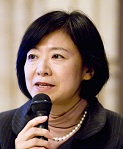
Yuri Okina
Vice Chairman of the Institute
Japan Research Institute
Fields: Financial systems, prudential policy, financial markets
After leaving the Bank of Japan to become a private economist, I have continued to conduct research focused mainly on financial regulation and prudential policy to ensure financial system stability. My interests include the relationship between prudential policy and central banks and how financial markets will be affected by the international regulatory tightening that ensued from the 2008 financial crisis.
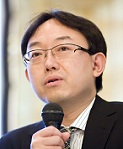
Izuru Kato
President, Chief Economist
The Totan Research
Field: Money market, monetary policy
In the wake of the Lehman failure, many of the central banks in the developed economies implemented unconventional monetary policies on an unprecedented scale. These policies succeeded in dousing the flames of the financial markets panic, but growth in the main economies remains anemic. The road to normalization is likely to be long and hard, and in the process imbalances may build up in the global economy and financial markets. As such, I hope to continue discussing both the merits and demerits of these ultra-accommodative policies.
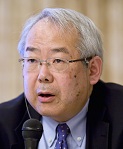
Yukinobu Kitamura
Professor, Institute of Economic Research
Hitotsubashi University
Fields: Financial theory, fiscal studies, econometrics
I am researching the relationship between finance and fiscal policy from various angles. I believe that there is much to learn from history, particularly in times of great change like the past few years. I am accordingly compiling and studying historical data and case studies. As a Panel member, I hope to offer a fresh perspective on monetary policy and the financial system.

Takashi Kozu
President
Ricoh Institute of Sustainability and Business
Fields: Macroeconomics, finance, macro stabilization policy
The traditional boundary between monetary and fiscal policy has grown increasingly blurred since the global financial crisis. There is also substantial overlap with the measures implemented to stabilize financial markets and financial institutions. Furthermore, there is a growing need to evaluate the feedback between the developed and emerging economies. I think the Financial Markets Panel can serve as a unique venue for an open-ended discussion incorporating a diverse range of views, and I hope I could make contributions from the viewpoint of a globally active Japanese firm.
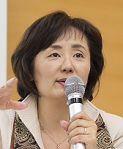
Ikuko Samikawa
Director, Financial Research
Principal Economist, Economic Research Department
Japan Center for Economic Research
Fields: Financial theory, monetary policy
The topics I have studied have changed over time, with Japan’s bad loan problems in the 1990s giving way to global imbalances and the GFC in the 2000s and unconventional monetary policy in the 2010s. However, my basic approach to the economy and financial system remains unchanged. I am constantly thinking about the questions posed by things that seem not quite right. What will be the eventual result of continued large-scale monetary accommodation? What does independence mean for a central bank? How should the national debt be managed during the process of financial normalization? As a member of the Financial Markets Panel, I hope to consider these issues from a multifaceted perspective.

Miyako Suda
Special Advisor, the Canon Institute for Global Studies
Professor, Konan University
Fields: Open macro economics, international finance, monetary policy
My research has focused on the global economy and international finance, but since spending 10 years making policy decisions as a member of the Bank of Japan’s Policy Board I have also become interested in domestic issues and the policymaking process. We are currently in the process of trying to envision a new global financial system from both macro and micro perspectives. As the world becomes increasingly globalized and central banks may potentially be asked to monetize government deficits, in what form can the independence of central banks be maintained? I hope to keep these issues in mind as we consider the kind of monetary policy needed to contribute to sustainable economic growth with price stability.
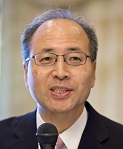
Hajime Takata
Managing Executive Officer and Chief Economist
Mizuho Research Institute
Field: Government bond market, monetary policy
As a practitioner in the financial markets—and the bond market in particular—I would like to examine monetary policy from a financial institution’s standpoint. I see substantial disparities in views on financial and economic conditions in Japan and elsewhere, both between domestic and overseas observers and between academics. It is my hope that the Financial Markets Panel can serve as a bridge between these disparate viewpoints. Inasmuch as the world’s central banks now find themselves in completely uncharted territory, I do not think there has ever been a time so interesting for the intellectually curious.
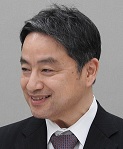
Atsushi Takemura
Executive Officer, Investment Planning Department
Mitsui Life Insurance Company
Field: Insurance ALM, global bond investment, market/credit risk
For more than twenty years I have been engaged in investment, asset-liability management, and risk management at life insurance companies and pension funds in both Japanese and overseas bond markets. During that time, Japan’s economy has been roiled by a variety of market events, including the rapid appreciation of the yen, the global financial crisis, and historically low interest rates. Against this backdrop, I have sought avenues for cooperation between market participants and fiscal and monetary policy. In Japan, the nation’s huge debt makes it difficult to consider monetary policy and the national debt policy separately. My goal on the Panel is to help develop the broad frameworks for market administration and policy needed to leave a healthy economy to the next generation.
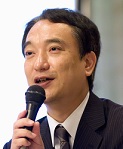
Katsuyuki Tokushima
Chief Pension Consultant
NLI Research Institute
Field: Pension and insurance, bond markets, credit markets
I have been involved in financial and capital markets mainly as an investor. With Japan facing the serious problems of a rapidly aging society and a decreasing population, I hope to draw on global perspectives to find the optimal role for financial and capital markets in this country. Taking balance between investment risks and returns is always a critical issue for investors, and I hope to discuss market developments and financial policies with the aim of contributing to their efforts.
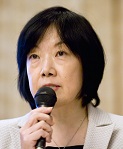
Naoko Nemoto
Financial Economist
Asian Development Bank
Field: Financial research with the focus on Japan and Asia-Pacific region, financial institutions rating
After undertaking financial research at the Bank of Japan, I became involved with the analysis of financial institutions in Japan and Asia. The unconventional monetary policies adopted by the world’s central banks have brought about major changes to financial institution balance sheets, and I hope to present my views on the impact of these policies from the standpoint of a bank analyst. Given the ongoing shift in Japanese policy, I am also interested in monitoring how the behavior of market participants is affected by inflation expectations and whether banks’ ability to supply funds at a reasonable price to sectors that need them will be undermined by the current ultra-low interest rate environment.
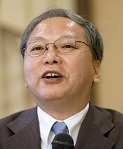
Shinichi Fukuda
Professor, Faculty of Economics
The University of Tokyo
Field: Money and banking, macroeconomics, international finance
While the Bank of Japan continues to implement its program of “quantitative and qualitative easing,” observers are watching to see how and when the Fed will wind down its own quantitative easing regime. A variety of data now provide support for the view that the US economy is in recovery, and the time when the Fed will need to implement an exit strategy is approaching. However, nervous market participants could react suddenly to the mere possibility of an exit. How should the Fed wind down its policy under these circumstances? Anticipating the impact of an exit will have important implications for monetary policy not only in the US but also in Japan.
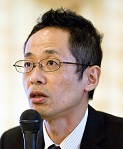
Kaoru Hosono
Professor, Faculty of Economics
Gakushuin University
Field: Macroeconomics, money and banking
Much time has passed since the global financial crisis, and the roles and activities of the world’s central banks have changed a great deal. Unconventional monetary policy, initially viewed as being a temporary and highly unusual response to the crisis, is quickly becoming the de facto standard. Many also seek a bigger role for central banks in maintaining financial stability. I have studied the interrelationships between monetary policy, the financial system, and the real economy, and I hope to discuss the optimal role for central banks from a global perspective and in light of the findings of my research.
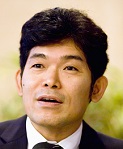
Noriyuki Yanagawa
Professor, Faculty of Economics
The University of Tokyo
Field: Contract theory, financial contracts
I think the panel’s mission is to engage in thorough discussion of a broad range of monetary policy related issues. Personally, I am interested in the impact of financial system structure on the strategy of monetary policy and their effectiveness. I think many would like to see the panel gather a wide range of insights related to monetary policy and to communicate that information to society as a whole. While this is an area that requires expertise, it is also one in which there is strong public interest, and I hope to initiate discussion on a variety of subjects.
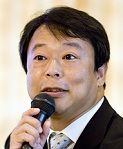
Toshiaki Watanabe
Professor, Institute of Economic Research
Hitotsubashi University
Field: Financial econometrics, macroeconometrics
My specialties are finance and macro-econometric analysis. In finance I study risk management with a focus on asset price volatility. On the Financial Markets Panel, I hope to consider better approaches to risk management while learning from market practitioners how these policies are actually implemented. On the macro-econometric front, recent years have seen the analysis of monetary policy effects using DSGE and VAR models incorporating Markov chain Monte Carlo (MCMC) methods. I hope to have the opportunity to present some of these new analytical techniques and findings before the Panel.
Organizer

Tetsuya Inoue
Chief Researcher, Financial Market & Innovation Research Department
Nomura Research Institute
Field: Financial markets, monetary policy, financial stability policies
Unconventional monetary policies were adopted by the developed economies around the same time the Financial Markets Panel was launched. While sharing a common starting point, these policies have now begun to move in different directions, reflecting the economic and financial conditions unique to individual countries. Given the changes that have taken place in financial regulation and the economic structure, policymakers are not so much seeking to return the world to its pre-crisis state as searching for a new equilibrium. It is my hope the Panel can continue to anticipate such developments while building on its traditional balance of theory and practice to further incorporate fiscal and financial system perspectives. I also hope to contribute to the discussions as a panelist.